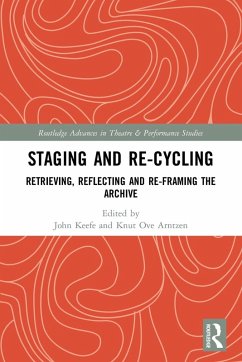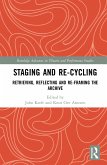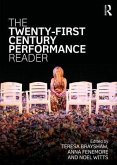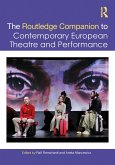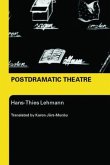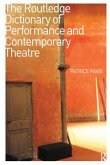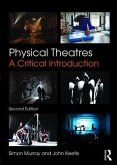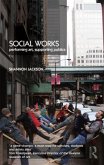In Staging and Re- cycling , John Keefe and Knut Ove Arntzen re-visit and reappraise a selection of their work to explore how the retrieval, re-approaching and re-framing of material can offer pathways for new work and new thinking.
The book includes a collection of reprinted and first-published (although previously presented) textual material interspersed with editorial material - reflective essays from John and Knut on these pieces from the archives and original essays from invited scholars that explore the theme of repetition and re-cycling. The project has a number of aims: to suggest how the status of 'new' with regard to academic and staged dramaturgical materials may be reframed; to re-examine these through certain lenses and concepts (re-cycling; re-working; the spectator; landscape, post- and other dramaturgies); to explore the possibilities of critique offered by particular modes of juxtaposition, dialogue and dialectic; to offer further provocations to received ideas; and to retrieve and re-approach material, once published or presented, that becomes 'lost' in archives or on library shelves. As shown here, the role of the hyphen acts as an indicator to the status of 're-' in relation to the 'new'.
Written for scholars and academics, researchers, undergraduate and postgraduate students, and practitioners working in all forms for theatre and performance, Staging and Re-cycling suggests a new form of dialogue between work, authors and readers, and draws out threads that extend back into the past and potentially forward into the future.
The book includes a collection of reprinted and first-published (although previously presented) textual material interspersed with editorial material - reflective essays from John and Knut on these pieces from the archives and original essays from invited scholars that explore the theme of repetition and re-cycling. The project has a number of aims: to suggest how the status of 'new' with regard to academic and staged dramaturgical materials may be reframed; to re-examine these through certain lenses and concepts (re-cycling; re-working; the spectator; landscape, post- and other dramaturgies); to explore the possibilities of critique offered by particular modes of juxtaposition, dialogue and dialectic; to offer further provocations to received ideas; and to retrieve and re-approach material, once published or presented, that becomes 'lost' in archives or on library shelves. As shown here, the role of the hyphen acts as an indicator to the status of 're-' in relation to the 'new'.
Written for scholars and academics, researchers, undergraduate and postgraduate students, and practitioners working in all forms for theatre and performance, Staging and Re-cycling suggests a new form of dialogue between work, authors and readers, and draws out threads that extend back into the past and potentially forward into the future.

